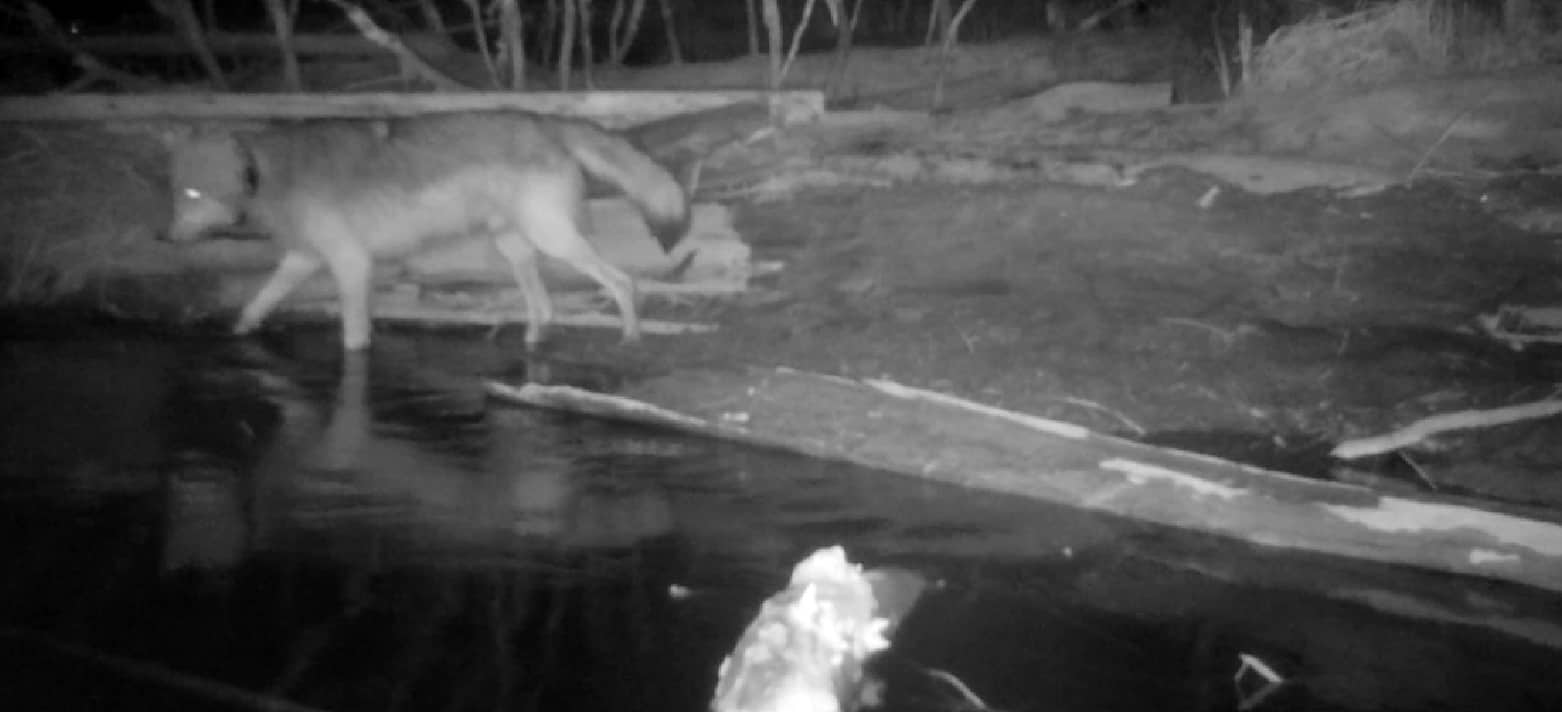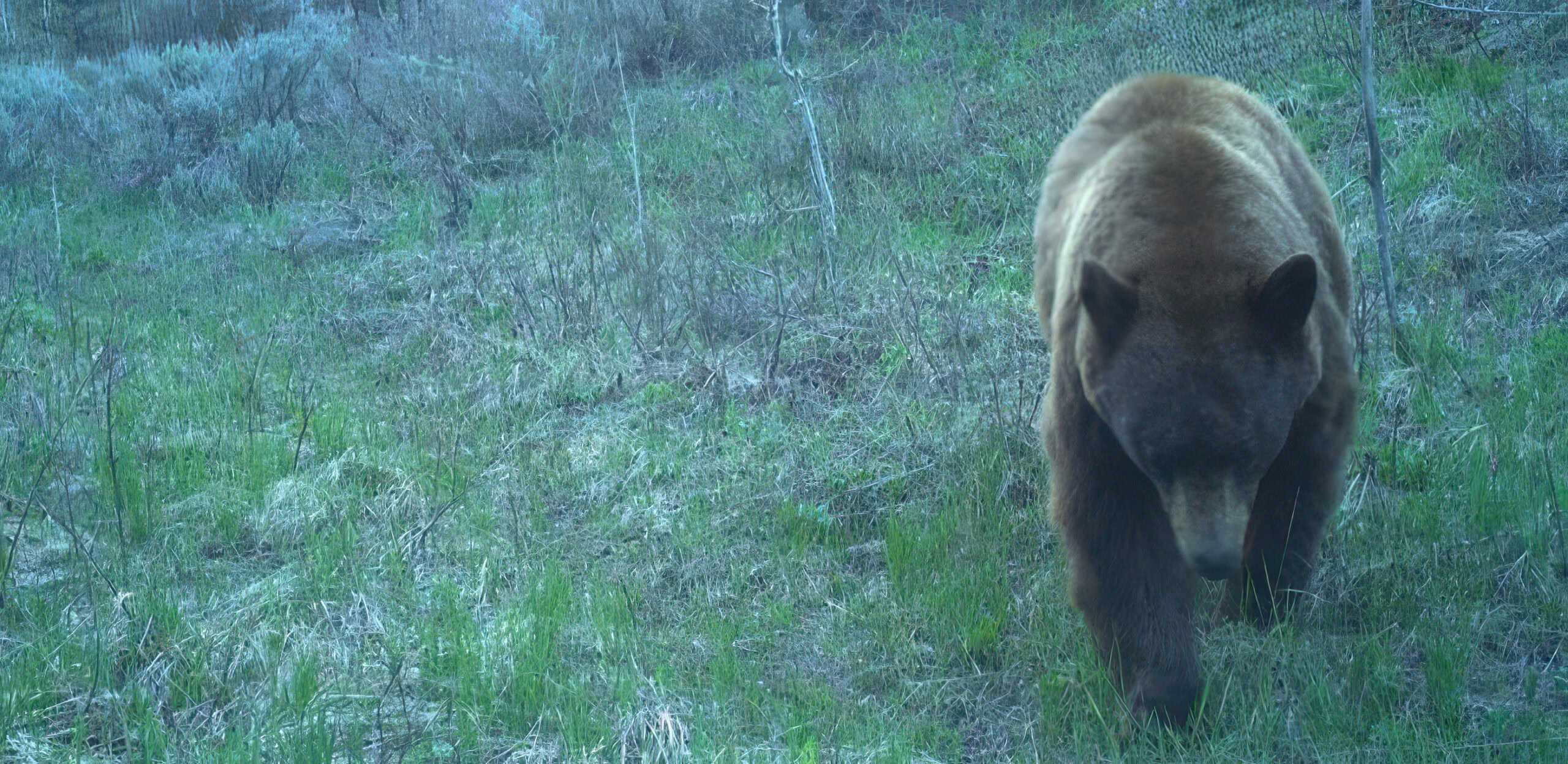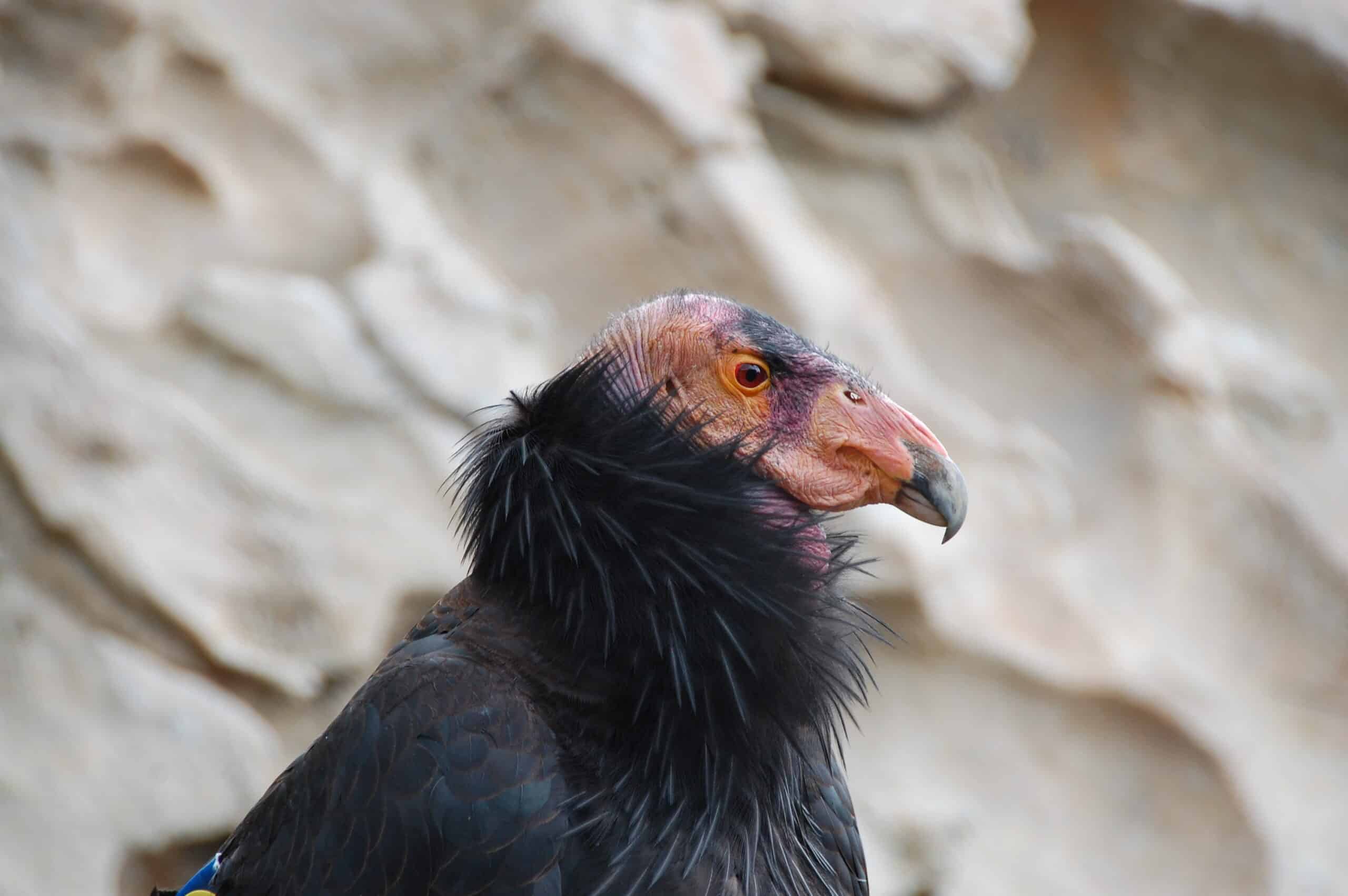Share this article
Wildlife Featured in this article
- Gray wolf
The fishing wolves of Voyageurs
Newly described behavior expands our knowledge of these northern Minnesota packs
The first time researchers caught footage of a wolf fishing on camera, they thought it was just a one-off opportunistic meal. It was 2017, and biologists were monitoring a number of trail cameras set up around Voyageurs National Park in Minnesota to keep a census of the wolf population. Wolves have a broad diet, but they’re not famous for fishing.
As the researchers continued to monitor the gray wolves (Canis lupus) in the following years, they kept an eye for images of similar behavior. Sure enough, every summer, their cameras recorded wolves hunting for fish. One researcher even saw a wolf fishing in front of him.
“It’s the pinnacle of what you’d want to see out in the field,” said Dani Freund, a master’s student at the University of Minnesota. “It shows that wolf hunting behavior is more flexible than we originally thought.”

A growing body of research has found that wolves don’t just prey on ungulates like moose (Alces alces) and deer. In the Katmai National Park, research has shown that wolves prey on sea otters (Enhydra lutris kenyoni).
In research published recently in Royal Society: Open Science, Freund and her colleagues described how this newly described behavior expands what we know about gray wolf behavior and freshwater ecosystems. Their video evidence revealed that 10 individual wolves—one lone wolf and nine from five different packs— exhibited this novel behavior.
These wolves were mostly catching white suckers (Catostomus commersonii), a bottom-feeding species that can get up to two-feet long but is often considered a throwaway species by anglers.
But the wolves didn’t seem to mind. They were often found fishing below beaver dams where the water was shallower, making it potentially easier to catch fish.
“Beavers seem to be indirectly facilitating this fishing behavior,” Freund said. In Voyageurs, wolves are known to prey on beavers (Castor canadensis). “[This] increases the depth of our understanding of the wolf-beaver relationship.”
White suckers often spawn at night—researchers saw wolves target them during this time. In fact, Freund said the wolves seem to cue into fish behavior on an hourly and seasonal basis, capitalizing on fish when they are abundant and easy to catch.
The wolves that fished spanned a large demographic range, including breeding females, yearlings and adult males.
“When wolves come across favorable conditions for fishing, they may be able to fish regardless of their past experience,” Freund said.Fish may provide a resource for wolves when other prey, such as deer, aren’t available, Freund said. It also adds to a growing body of evidence that wolves are more flexible in their diet than previously believed. Biologists recently discovered that wolves in Voyageurs eat berries as well as prey species.
Header Image: Researchers observed several wolves in Voyageurs National Park fishing. Credit: Voyageurs National Park








